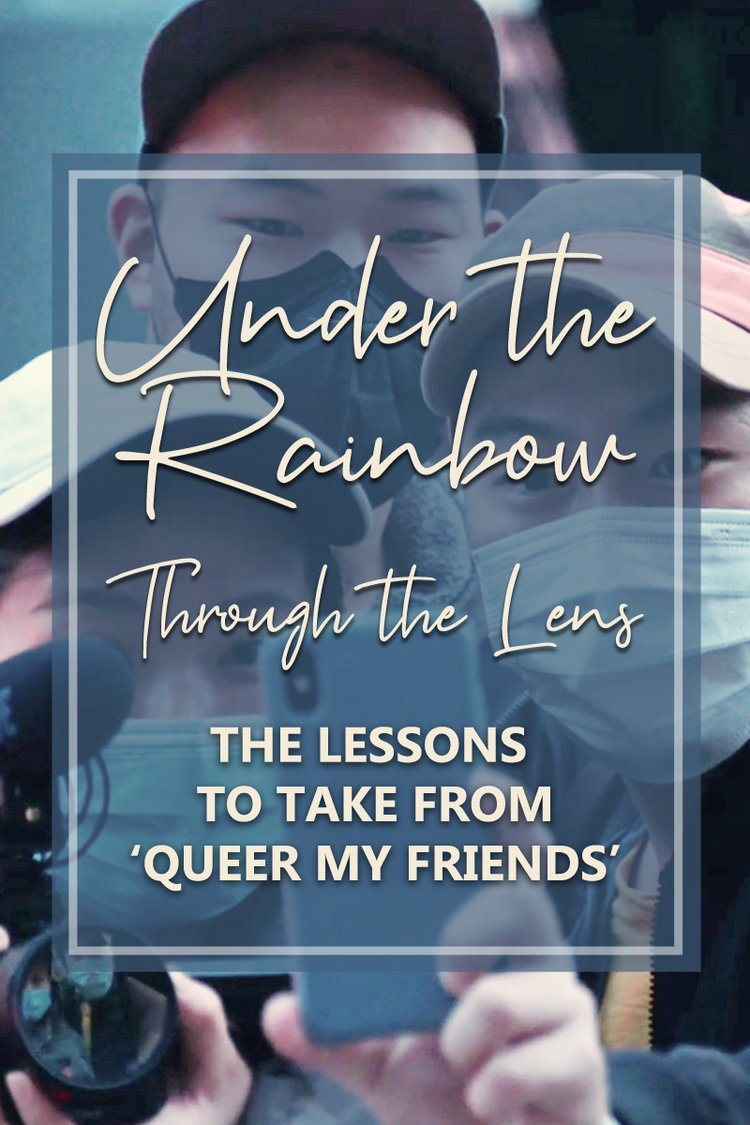
Under the Rainbow, Through the Lens; The Lessons to Take from 'Queer My Friends'
Disclaimer: the following blog post contains material that may be considered sensitive or triggering to some readers, including sex, LGBTQ+ discrimination, religious commentary, military enlistment, depression, self-harm, and mention of death.
The analysis/synopsis below also contains spoilers for several of the film’s key beats.
As an Honorary Reporter for the Korean Cultural Centre Canada, I get to find out when cool Korea-related stuff is happening all over the country, and so at the announcement of Queer My Friends showing at the Hot Docs Festival, I nearly leapt out of my chair with excitement.
Not only am I a big proponent of social justice and anti-discrimination laws, but I am also bisexual, which gives me existing insight into the fight for fully equal human rights, for queer people everywhere. I’ve also dedicated a lot of time to learn about Korean history and social culture, therefore, I went into this documentary with a decent amount of knowledge regarding the challenges gay people face in Korea.
Even though Queer My Friends focuses specifically on being a cisgender gay Korean man, there is also a bigger picture painted by the director about the value of human life and the existential dread associated with being a sexual minority, which I outline below. Personally, I consider looking at perspectives outside your own an extremely important part of being a mature person, and therefore I highly recommend watching this doc if you’re straight because you might not even realize some of the things you take for granted every day.

In Korea, homosexuality has never been explicitly illegal at any point in history, and consensual sex between two members of the same sex is currently legal; however, gay marriage and civil unions are not recognized as legal partnerships. Fortunately, as of April 2022, in a landmark ruling, it is no longer against the military code to be gay or engage in same-sex fraternization— previously punishable by prison time —as long as sexual congress does not take place on the base. To me, it’s truly wonderful to see a country taking steps towards being more accepting of all lifestyles, no matter how small that step may be.
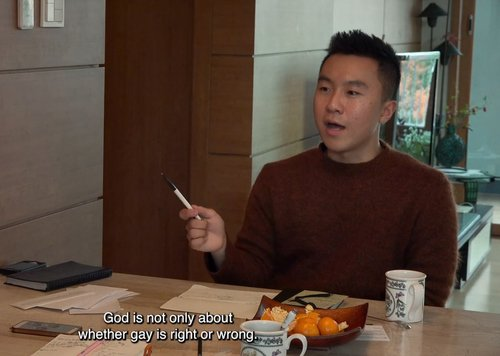
Kang-Won, the longtime best friend of director Seo Ah-Hyun, is the subject and ostensible main character of Queer My Friends. The audience meets him as a friendly young man with the kind of smile that would light up a room, and though Kang-Won experiences a roller coaster of emotions throughout the course of the documentary (which spans over years), there is a certain brave quality that he never loses. Both Ah-Hyun and Kang-Won kept my attention and made good subjects of study because I found them very relatable, both embodying the kinds of daily and existential struggles young adults face.
We do meet the charming best friends in Korea at the start of the documentary, but those were old clips; at the point the director started the project, Kang-Won had already moved overseas.
After moving to the United States, Kang-Won used social media to publicly come out as gay, emboldened by the support of his parents. When Ah-Hyun asks him how he accepts being gay and Christian, he explains God must love all people the way they are made, because he made them that way. Also, he doesn’t believe God busies himself with the kind of petty micromanaging of humanity required to disapprove of homosexual relationships. Between this realization and the continuing love of his parents, it seemed like nothing could make him regret the decision to come out.
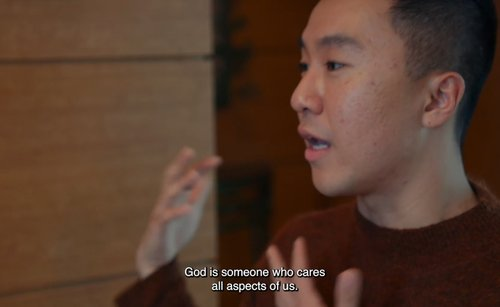
It’s incredible, the kind of confidence accessed when one is accepted and loved by those closest to them, allowing them to feel like they can face anything the world throws at them. For Kang-Won, this support seemed to be all he needed to flourish in the USA: he voluntarily gave up his Korean citizenship (becoming an American citizen instead) to join the United States Armed Services, where he was valued, praised, and promoted all the way to Sergeant. It should have been a proud time for the young man, but things in life are rarely so simple.
Many queer people around the world feel trapped somewhere between their personal identity and the expectations of their family, country, or religion. Kang-Won is no exception to this struggle.
As of November 2020, reports from Hankook Research show approximately 28% of the Korean population is Christian (Protestants account for 20%, while just 8% are Catholic). It’s likely that if you’ve heard North American Christians speak on the topic of homosexuality, you’d be able to guess how Korean Christians feel about it, with the added complication that traditional Korean culture tends to lean towards the more modest side of things.
For many families who observe this religion, the general expectation is that sons and daughters will grow up to marry someone of the opposite sex, have children, and continue the family lineage the way their parents did before them. Sadly, as in many cultures worldwide, the overbearing pressure to wed and procreate can have significant negative effects on the mental health of today’s young adults. Ah-Hyun addresses this in the film when she attends her younger brother’s Christian wedding and, in her own words, is made to feel like a loser for being over thirty without a spouse.
The bitter irony is that even though straight men and women may be uncomfortable with the harsh pressure to get married, they take for granted the fact that they can even get married at all. In an emotional video call between Kang-Won and Ah-Hyun, the young man curls in on himself as he describes being crushed by the fear that God, the most reliable and benevolent force in his life, will at some point abandon him for being gay.
Spurred on by her best friend’s existentially-motivated fear, Ah-Hyun uses the time Kang-Won was abroad to attend the regular gay rights protests in Seoul; her focus, however, is mainly on the Christian counter-protesters, who shout Bible verses and words of condemnation at those seeking equal treatment and protection from discrimination. Raised in a strict Christian household, and actively hiding the creation of Queer My Friends from very traditional Christian parents, Ah-Hyun asks a powerful question as she observes the two conflicting protests: what side of this would I be on, if I didn’t have a gay friend?
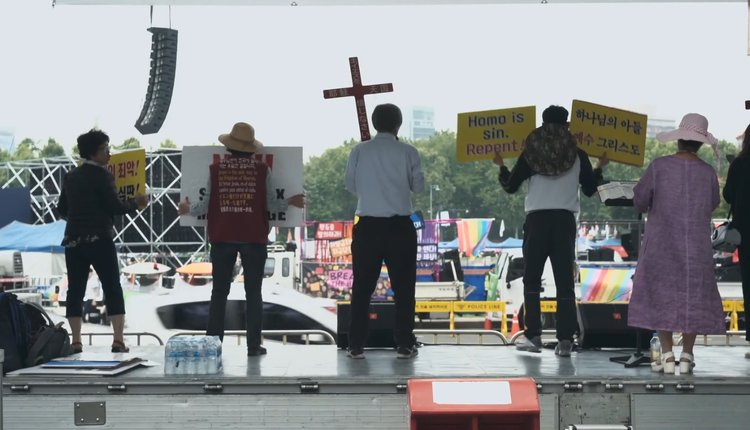
Where might you stand, in her place?
After being reassigned to Germany, Kang-Won’s mood seemed to shift for the better, at least temporarily. In another video call, he explained he felt there was more to him than just being gay, and that he didn’t want his sexual identity to become his entire identity.
This is something many queer people end up enduring or falling back on, especially in less-than-accepting societies; feeling reduced to a single trait because that is the trait with which their non-LGBTQ+ community judges them.
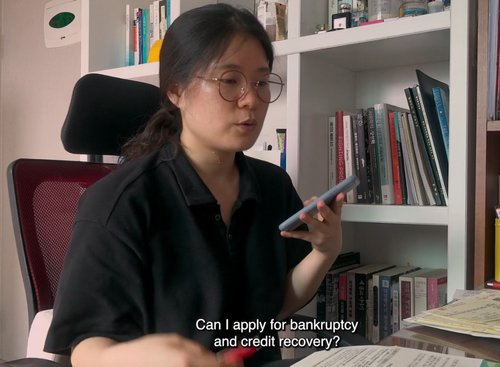
While Kang-Won finishes his assignment in Germany, Ah-Hyun documents how she’s going through what is one of the most relatable situations for young adults these days: stuck living at home, with a pile of student debt, and no job due to employment scarcity. The scenes are hard to watch, particularly for anyone who has gone through a stretch of helplessness and hopelessness in their life.
Despite appearing better when he was first reassigned, after a year or so, Kang-Won sends his best friend a hand-written letter, explaining how he’s constantly haunted by the thought that he’ll never find true happiness, or love, calling them “impossible”, because of his sexual orientation. Breaking my heart, at the end of the letter he says he wants to die— a very common passive desire among non-cis, non-straight people —instead of living this life where he is denied the basic happiness that’s just a given for straight people.
Honestly, it’s somewhat strikingly bizarre that none of us really think about the things we take for granted until we’re made aware that someone else doesn’t have the same privileges we do.
I realize this post has been pretty heavy, so if you’re on the cusp of crying or even just feeling blue, it might be best to step away and come back later to finish, because there are more heavy topics to come.
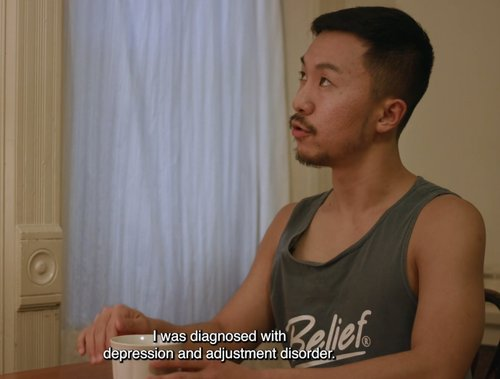
Now, I’m no stranger to being judged for having a mental illness— including once being fired from a full-time job because of it —so when Kang-Won admits that he’s been diagnosed with depression and that he was discharged early from the army as a result, I was moved to tears, filled with empathy for the lost soul he’d now become without the career he’d spent his entire adult life building.
Ah-Hyun is forced to chase her friend to New York, the place he runs to after leaving the military, and when she finally visits in person, it is extremely clear that Kang-Won is a shell of the person he used to be. Even though he chose to immerse himself in dance and performance art while living in the city that never sleeps, he admits that his depression has worsened, and more importantly, that nothing external was causing this lengthy stretch of sadness; it was his own internal self-loathing and fear consuming him, making him continually question his very existence.
Important note: while it’s normal for all of us to feel sad, sometimes longer than we’d like, when someone is diagnosed with depression it affects every single aspect of their life, from being unable to get out of bed to idealizing self-harm. If you or someone you know is struggling with serious depression, call 1-866-296-1697 or, if someone is in danger, 1-833-456-4566.
For Kang-Won, healing from the ongoing darkness began with going home to Korea. A familiar place and language, familiar faces and food, seemed to be exactly what he needed, and sure enough, after some time, we get to see that sweet heart-stopping smile again.
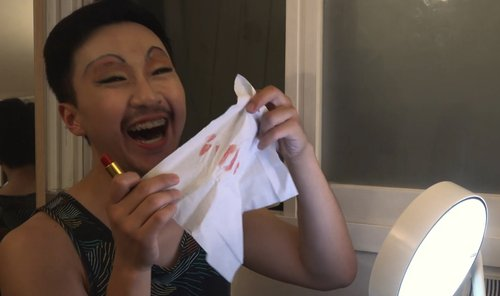
So, back in Korea and starting to feel comfortable in his own skin again, Kang-Won developed a fascination with drag performers. Since the skills required to be a drag queen are fairly complementary to the dancing (in heels!) he practiced and performed in the States, the audience gets the absolutely delightful pleasure of witnessing a man get into drag for the very first time, doing his own makeup and everything.
Experimenting with drag takes bravery at the best of times in much more liberal countries; doing it in a place where such things are largely seen as unacceptable is basically unfathomable to me.
Our protagonist is initially excited and eager to step into Seoul’s surprisingly prominent drag scene, and exclaims for the camera that part of his motivation to try drag is to challenge the stereotypes of what masculinity is, and how it’s represented.
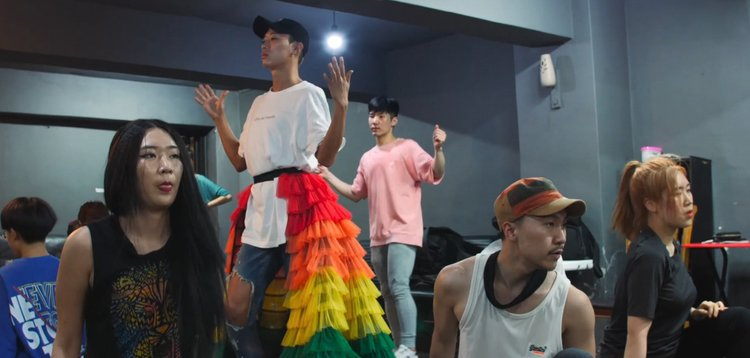
This sentiment is something I wish would resonate worldwide, since every country and culture has different ideas of what “masculine” and “feminine” look like; moreover, as someone who identifies as nonbinary, I believe the way our society has gendered things like clothing, shoes, makeup, and accessories is harmful and totally needless. In my opinion, anyone should be able to wear anything they want without being mocked, questioned, or attacked.
Going back to Kang-Won, his bravery increases tenfold when he talks openly, candidly, about taking antidepressants and other medications for his mental health. Ah-Hyun seems to be in favour of getting away from pills, which I interpreted as a kneejerk reaction from someone raised in a world where, until recently, people who took pills for something happening in their head were considered crazy or unstable.
Korea has historically allotted fairly little public money towards mental healthcare; while the Mental Health Act was passed in 1995, by 2005 there was actually no money in the federal budget for treating mental illness. Thankfully, with greater understanding and more progressive politicians, as of 2020 the budget has increased to 301B W (South Korean Won). Countries all over the world need to increase their focus on ensuring the mental stability of their people, and I feel proud that Korea is among those who are moving in a direction to do so.
By this point, I’d been hoping the story of Kang-Won’s journey would start going in a more positive direction, for both his sake and Ah-Hyun's too, but sometimes life just really piles the bad stuff on.
Some context: since Korea is at war (a ceasefire is currently in place, but the war is active nonetheless), all male citizens must enlist, do basic training, and complete their assigned term in the military— typically a little less than two years —after age eighteen, and before age thirty.
Because he’d moved to the United States during university, then gave up his Korean citizenship and began working in the US military right away, Kang-Won never ended up serving his time in the Korean military. Without his citizenship or military service complete, Kang-Won was denied a work visa, and therefore the ability to work legally in Korea.
Falling back into depression is as easy as breathing for someone mentally ill, and can come around faster than a blink of an eye. In a vain attempt to distract himself from the ceaseless self-hatred, Kang-Won auditioned, and actually succeeded in securing a spot on the stage, for the Seoul Queer Festival… but on the big day, the young man was nowhere to be found, and never showed up in the community again.
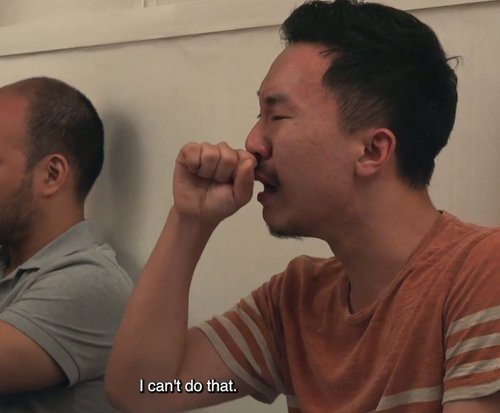
In what was potentially the most emotional and heart-wrenching clip in the entire documentary, we witness Kang-Won finally snap, exploding with frustration and guilt over Ah-Hyun's constant attention; her neverending presence and pestering in his life every day, even when he’d rather be alone. Watching the conversation between them is really the only way to understand the full impact: when you hear Kang-Won’s voice break, when you see the agony in Ah-Hyun's eyes. Even when she tries to explain that working on this project saved her life which was otherwise empty, her best friend is forced, between sobs, to admit the agony she’s inadvertently causing him by caring about him so much.
Kang-Won feels torn between two terrible circumstances: if he accepts her kindness and allows her to help him, he feels weak and stupid, unable to manage his own life. If he rejects her and keeps withdrawing from their friendship, not only will he hurt Ah-Hyun more than he already has, but he’ll still end up feeling helpless and lost. When Korean society expects a man to be independent, intelligent, mature, and goal-oriented— never to be seen asking anyone for their kindness or assistance —Kang-Won feels forced to confront the gender-based expectations being thrust upon him. The feeling of alienation he had before is now amplified tenfold while he wrestles with the question, does any of this make him less of a man?
Ah-Hyun went into making this film with the most honorable of intentions: she wanted to make something that she could share with the world, to help them understand what life is really like for a gay Korean man. Moreover, she put most of her focus on trying to frame Kang-Won as a hero of the story; so much focus, in fact, that she missed how much pain he was in… how scared he felt over his unstable existence every day.
Honestly, I wish I could tell you that everything miraculously turned around for the precious and fragile young man we have, through this movie, been following for years. However, it’s probably obvious by now that Kang-Won’s life is still difficult.
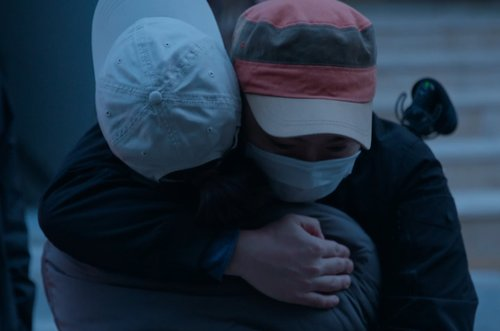
As our director helps him pack up his modest home, Kang-Won speaks in a soft but strained voice, explaining that he has no choice but to leave Korea; a place where he can never truly be himself. To add insult to injury, he no longer even feels he can call himself Korean because his lack of military service makes him “reprehensible” in society’s eyes. With nothing left for him in his homeland, Kang-Won moves back to the United States, where he at least has citizenship.
An epilogue-like narration by Ah-Hyun, recorded over beautiful sprawling shots of Korean neighborhoods, reveals that the documentary had more or less been set aside after the confrontation, potentially to remain unfinished forever.
Luckily for her, me, and everyone else who watches this incredible film, the young woman discovers a book once gifted to her by Kang-Won: the autobiography of a filmmaker. Driven forward by the notion that she wasn’t alone, that someone had walked the steps before her, Ah-Hyun finished her project, and we all got to watch Kang-Won’s story, through Queer My Friends.
If you’re unable to get your hands on a copy of this film (and please don’t pirate stuff like this, you should support independent artists with money they rightly deserve), I hope my not-so-brief synopsis and analysis have taught you something new today, and might encourage you to take action in the future.
Thank you so much for reading.
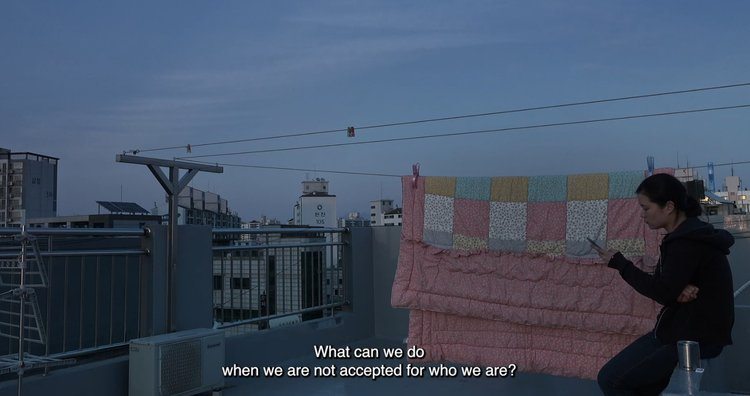
Original posting at Alex's blog